How Long Does THC Stay in Your System?
Cannabis has a long half-life in humans. Research suggests that cannabis stays in your bodily fluids for up to 30 days. However, if you use cannabis daily, it could remain for longer.
Some factors that might determine how long cannabis stays in your system are:
- How much and how often you consume cannabis
- How much body fat you have
- What type of THC drug test you take
Saliva and Blood Tests for THC
Cannabis metabolites are present in saliva and blood for one to three days. If you use THC daily, it can stay in your system for up to 30 days after the most recent dose. Since blood tests are more invasive and take longer to process, they’re not commonly used. Medical professionals may test for THC during an accident or emergency. Saliva tests are commonly used for roadside testing when getting pulled over.
Urine Tests for THC
Urine samples are the preferred way employers and officials will test for THC because they’re the easiest to do and can detect higher concentration levels for longer periods of time. According to research, urine tests are also the most accurate. If you use cannabis less than weekly, chances are the metabolites will appear one to three days after using. For daily users, metabolites could remain for 30 days or more, even if you’ve only microdosed THC.
Hair Tests for THC
Cannabis concentrations can remain in hair follicles for up to 90 days. However, hair tests for THC are not commonly used. They’re the most expensive option for testing and take the longest to obtain results. Some research also suggests that cannabinoids can appear in hair follicles simply from exposure to cannabis smoke. Even if you didn’t smoke it, being in a room with others who have could impact the results.
Is Microdosing THC Legal?
After the federal government created a legal distinction between marijuana and hemp products in the 2018 Farm Bill, hemp production became federally legal. Hemp contains no more than 0.3% of THC by dry weight. Marijuana contains more than 0.3% THC by dry weight and is still considered a controlled substance by the federal government.
This means hemp-derived Delta 9 THC is federally legal, but some states do have their own restrictions on Delta 9 and Delta 8’s legality. To find out if Delta 9 is legal in your state,read our guide to state-by-state Delta 9 legality.
All of our products, including our melatonin gummies, are made with 100% American hemp produced in compliance with federal law, so you can consume low doses of THC safely and legally.
Do CBD Gummies Have THC in Them?
CBD gummies can have THC in them. CBD oil, tinctures, and gummies can be sold in three ways:
- Full spectrum CBD
- Broad spectrum CBD
- CBD isolate
A broad spectrum product contains multiple cannabis compounds like CBD and CBN, but no THC. A CBD isolate contains pure CBD. Full spectrum CBD contains a range of cannabis compounds, including THC.
If you’re microdosing CBD and are looking for a daytime edible to relax and energize you throughout the day, buy our Anytime Broad Spectrum gummies. With just 10mg of CBD per serving in a citrus lime flavor, you can experience the benefits of CBD while still feeling functional.
Though a primary difference between CBD vs. THC is that CBD is non-psychoactive, the two cannabinoids impact the body differently. CBD does not bind to the cannabinoid receptors in the body, but rather antagonizes them. CBD is also known to downregulate THC, making the substance more tolerable when taken with CBD.
Taking THC and CBD together creates a cannabis synergy known as the entourage effect. This means that the effects of the cannabinoids are enhanced when combined. While research on whether the entourage effect is real is still new, studies show promising results that the two cannabinoids work well when paired up.
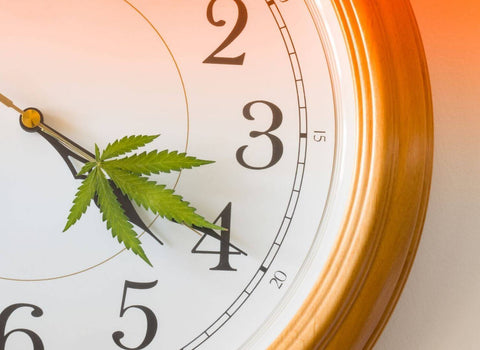

![Buzz Packs™ [THC and CBD Powder Drink Mix]](http://www.namacbd.com/cdn/shop/files/nama_buzz_packs_thc_drink_pack_white_background.png?v=1769586244&width=480)
![Buzz Packs™ [THC and CBD Powder Drink Mix]](http://www.namacbd.com/cdn/shop/files/Buzz_Packs_Label.png?v=1769586244&width=480)


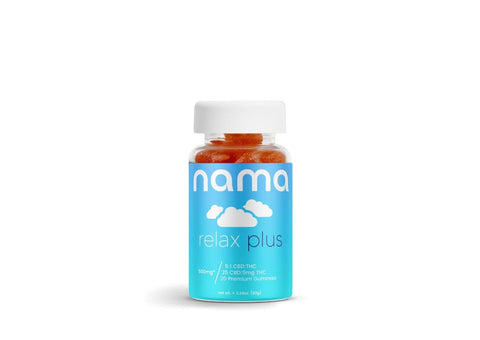
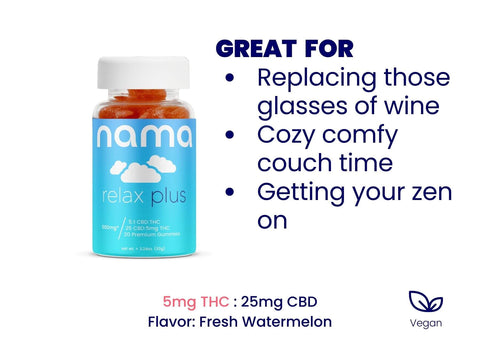
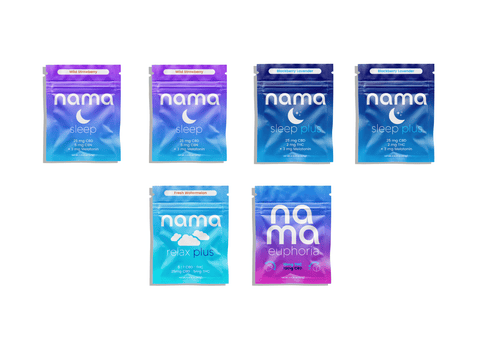
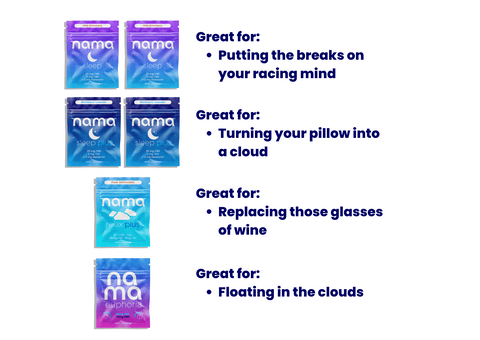


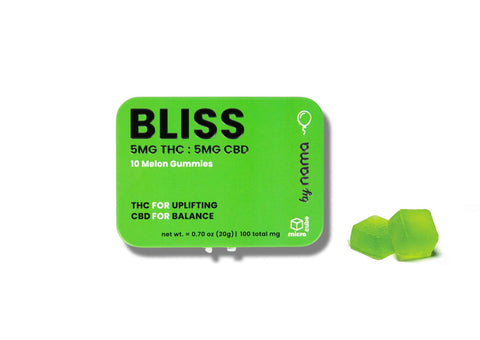
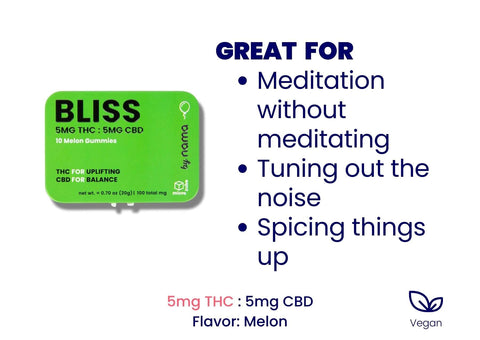
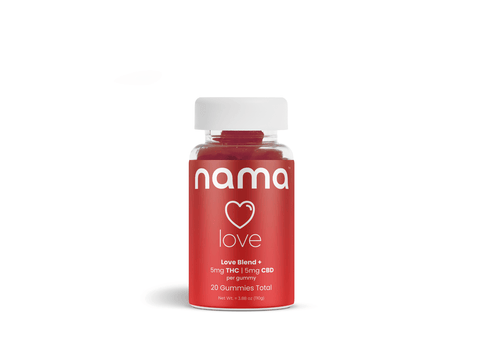
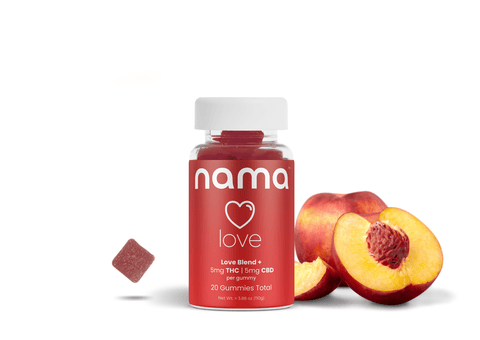
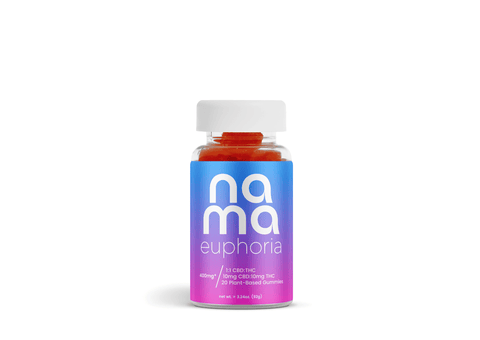
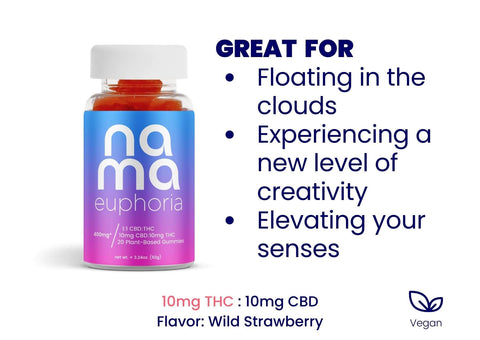







![Buzz Drops™ [THC Drink Drops]](http://www.namacbd.com/cdn/shop/files/nama_thc_buzz_drops.png?v=1711412866&width=480)
![Buzz Drops™ [THC Drink Drops]](http://www.namacbd.com/cdn/shop/files/buzz-drop-wine-comparison.png?v=1736882023&width=480)


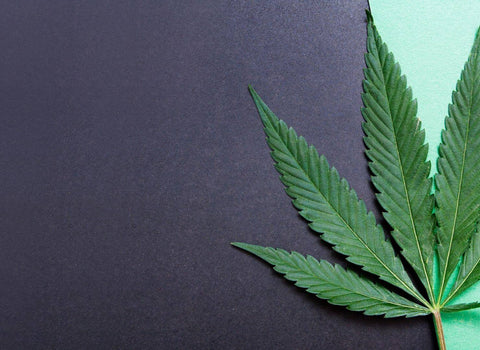
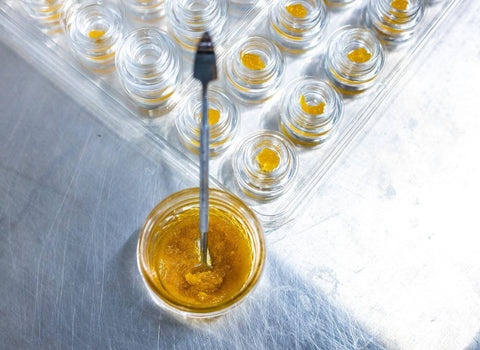



Comments (0)
There are no comments for this article. Be the first one to leave a message!